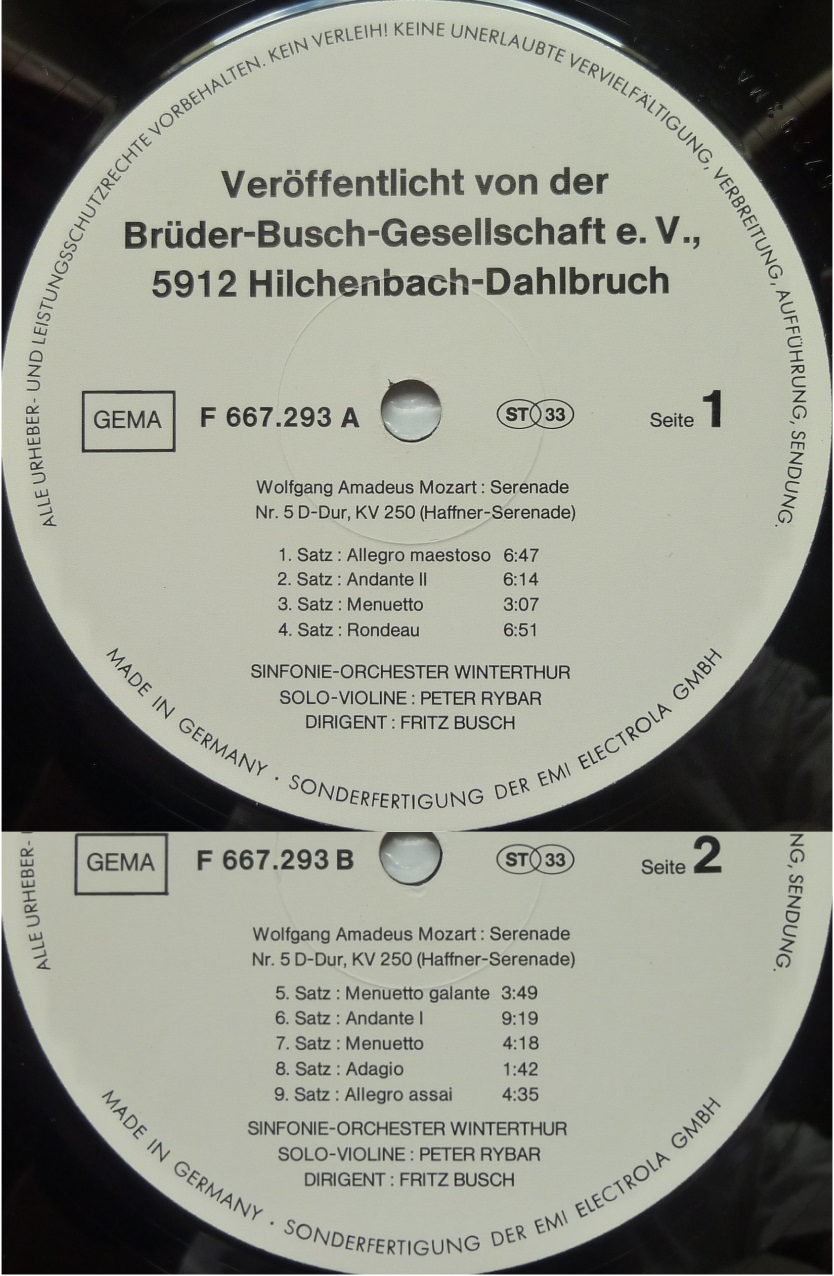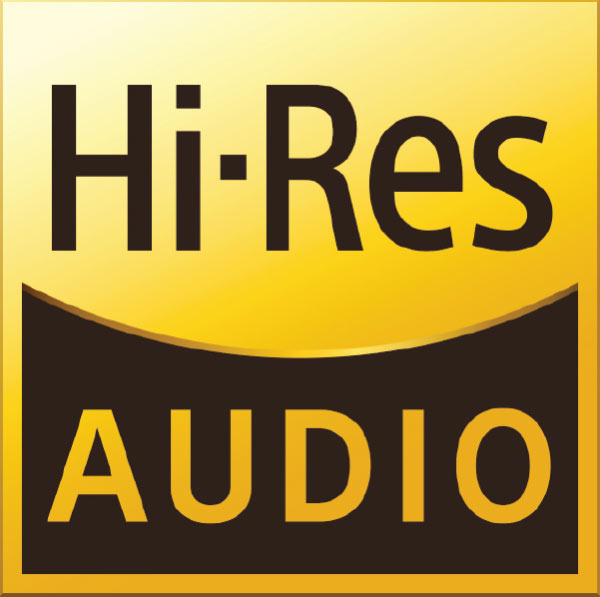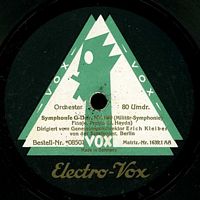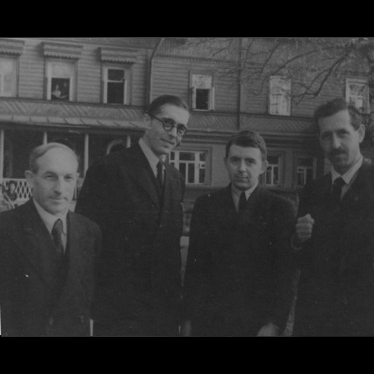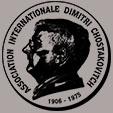Étiquette : Edwin Fischer
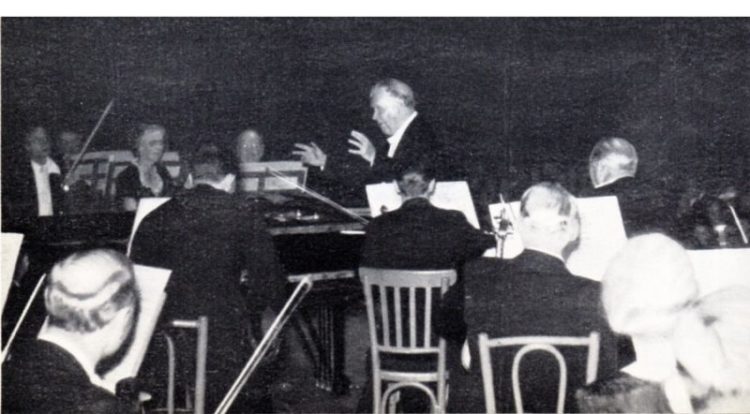
Edwin Fischer – Philharmonia Orchestra
Beethoven Concerto n°4 Op.58
London Abbey Road Studio n°1 – 4,9 & 14 Mai 1954
Prod: Walter Legge & Walter Jellinek – Eng: Douglas Larter
Source 33t/LP: RLS 2900013 ‘HMV Treasury’
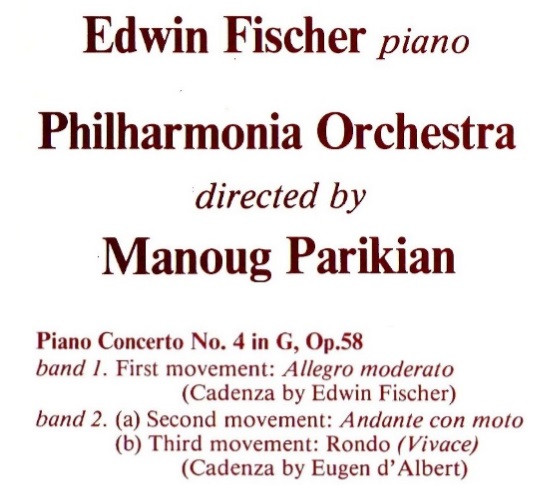
Entre le 3 et le 20 mai 1954, Edwin Fischer a entrepris une importante série d’enregistrements à Londres, dont trois Concertos avec le Philharmonia Orchestra.
Cette année là, du fait de difficultés qui ont surgi avec les musiciens suisses, le Comité d’organisation des Luzerner Festwochen a du renoncer aux services de l’Orchestre Suisse du Festival, et il a été annoncé en janvier 1954 que ce serait le Philharmonia Orchestra qui assurerait tous les concerts des Semaines Musicales de Lucerne (article de René Klopfenstein dans ‘La Liberté’ du 9 janvier 1954).
Suite à ce prestigieux engagement, l’Ambassadeur de Suisse à Londres, Henry de Torrenté, organisa le 5 mai au Goldsmith’s Hall un concert de gala consacré à des œuvres de Bach et de Mozart auquel étaient conviés en présence de nombreux officiels Edwin Fischer et le Philharmonia Orchestra ainsi que la violoniste suisse Marie-Madeleine Tschachtli.
Et plus tard, le 18 août, Fischer a dirigé le Philharmonia Orchestra pour le 5ème concert symphonique du Festival avec au programme le Concerto Brandebourgeois n°2 de Bach, le Concerto n°22 K.482 de Mozart et le Triple Concerto Op.56 de Beethoven (avec Schneiderhan et Mainardi). La ‘masterclass’ de Fischer a débuté le lendemain du concert, après une réception informelle organisée par Walter Strebi, au cours de laquelle Fischer a joué la sonate ‘Waldstein’.
Dans ‘L’Impartial’ du 20 août, est paru un long article du critique Jean-Marie Nussbaum qui relate son expérience d’une des répétitions de Fischer: ‘Je sors d’une répétition du concert Edwin Fischer – Orchestre Philharmonia de Londres. Rien de plus agréable que d’assister à une telle séance de travail. Les exécutants, sanglés le soir dans leur habit et leur respectabilité jouent ici en manches de chemise, affalés sur leur chaise en des positions fort peu académiques. Ce vaste gentleman ventripotent et moustachu taquine du mouchoir sa contrebasse empoussiérée. Bref, on est à l’aise…
Dans la salle, quatre ou cinq langues, ou plus. Il y a un nombre inusité de «techniciens » de la musique. Voici le violoncelliste français Pierre Fournier, suprêmement distingué et qui sait jouer avec art, et son accompagnatrice Reine Gianoli, au cheveu plat comme l’imagination d’un caricaturiste romand. Et d’autres, que naturellement nous ne connaissons pas.
Fischer, ce grand pianiste suisse, est déjà au milieu de ses « poulains ». Tête de lion beethovénien posée pile sur un corps râblé et court sur pattes de petit bourgeois argovien, il serre des mains à droite, à gauche, et hop! Il tape dans ses mains au-dessus de sa tête pour attirer l’attention, étend les bras et… c’est !a prodigieuse entrée du Deuxième Brandebourgeois qui se fait entendre, puis une série de pages (car on ne joue pas tout) de ce luxuriant et baroque concerto, où font merveille le violon, la flûte, le hautbois, la trompette et le clavecin du « Philharmonia ». Quelle distance entre ce jeu et celui de Cortot (qui a dirigé les Brandebourgeois à Paris)! Comme le second est dix-huitième, fulgurant, libre, et Fischer romantique! Et que tous les deux sont beaux, cependant…
Arrêt: on s’explique mi en anglais, mi en allemand. Fischer court de-ci de-là griffonner quelques indications dans les partitions. Éclat de rire: le bon chef suisse a dû faire un «witz»… Et on repart…On va jouer l’un des plus beaux Concertos pour piano et orchestre de Mozart, celui en mi, grâce auquel, avec celui en ré, nous avons été converti à la religion mozartienne à laquelle jamais nous ne serons infidèle. Fischer joue la partie de piano et dirige en même temps. Le petit homme bondit de son instrument comme un diable de sa boite pour indiquer une entrée, une inflexion, une tendresse. Puis retombe sur le clavier, et la merveilleuse rêverie recommence…
— Ah! mais cette pédale.. . Il y met trop de pédale, s’exclame derrière moi un auditeur barbu, qui suit la musique sur la partition.
— Vous voulez peut-être aller jouer à sa place ? riposte vertement un spectateur à lunettes qui a l’air d’être de la partie.
Cher Fischer! Peut-être en effet ne menez-vous pas votre orchestre avec la rigueur de M. Furtwängler; vous jouez avec lui comme avec votre piano; je n’en sais rien. Mais ce que je sais , c’est que vous avez créé, je dis bien créé, une interprétation de Mozart que l’on n’oubliera plus.
Vous avez pensé que la musique était faite d’émotion, et non de technique, et vous avez mis vos dons magnifiques d’exécutant au service de votre cœur: vous avez bien fait! La qualité de votre main, quand vous jouiez ce Concerto, égalait celle des plus grands artistes: ceux qui miraculeusement réunissent la forme et le fond dans la simplicité et le naturel du style. Votre Mozart est romantique? Certes: qui a jamais dit qu’il ne pouvait pas l’être?
Et bien sûr, si lors des séances d’enregistrement de mai 1954, Fischer, qui comme l’a rapporté Gerald Kingsley, a bien dirigé l’orchestre, et si le rôle de Manoug Parikian qui a mené (‘directed’) l’orchestre sans toutefois le diriger (‘conduct’), n’est pas défini, cela pose une question. Par contre, le récit de la répétition de Lucerne ne montre pas que Manoug Parikian aurait pris une part quelconque dans l’interprétation des deux œuvres de Bach et de Mozart.
Le critique du ‘Neue Zürcher Zeitung’ a d’ailleurs relevé dans le numéro du 21 août: ‘Cela n’a pas été sans imprécisions, surtout dans le Concerto pour piano en mi bémol majeur K. 482 de Mozart, car lorsqu’il devait jouer, Fischer n’a pu donner ses instructions de direction que par des regards et des mouvements de tête sur de très longues plages de musique’.
On ne sait pas, bien sûr, quelle est la réponse, mais ce que l’on sait, c’est qu’il est plausible d’émettre l’hypothèse que, pour les enregistrements de mai 1954, le besoin se soit fait sentir de recourir aux services de Parikian juste pour éviter de telles imprécisions.
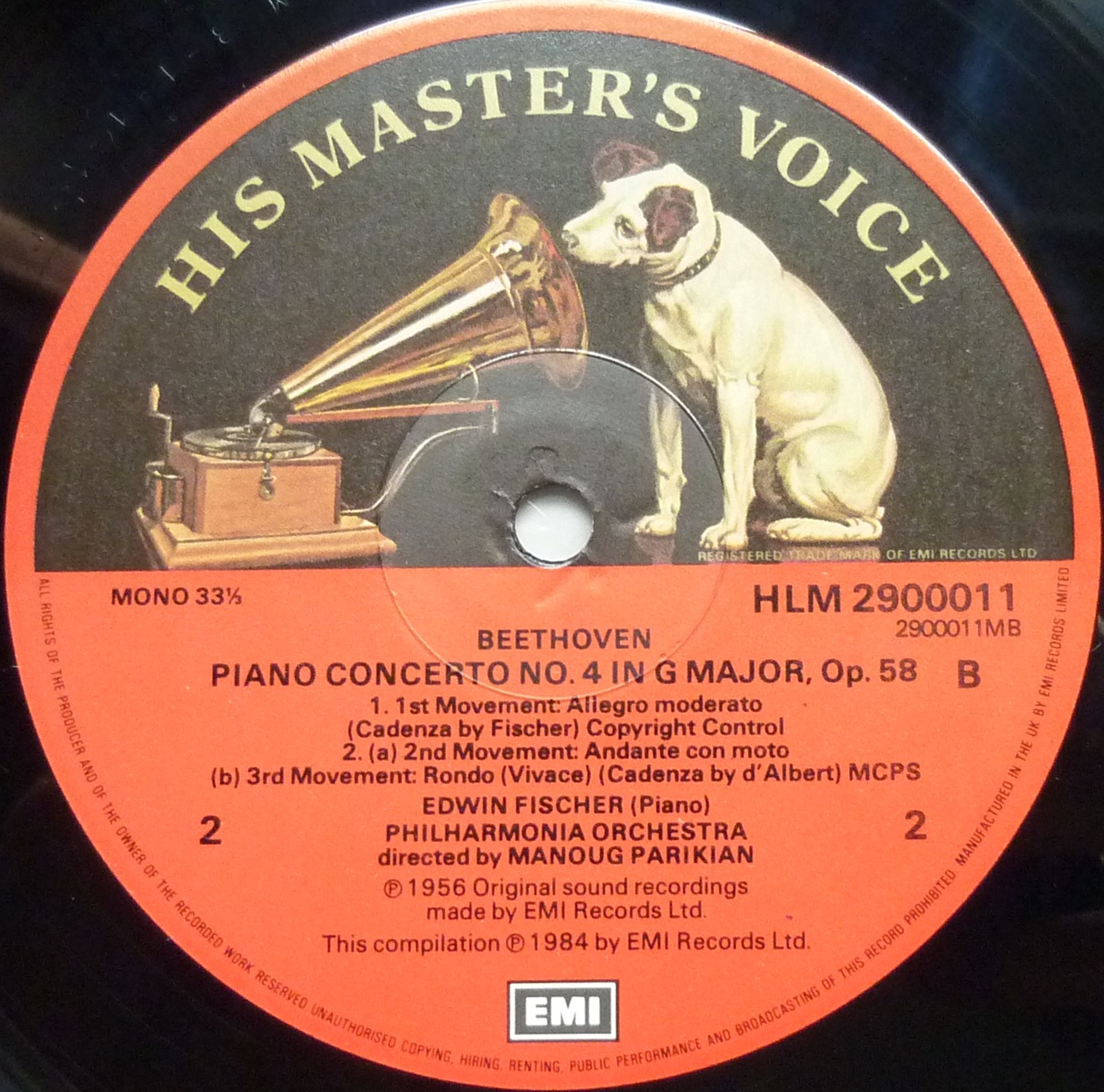
Between 3 and 20 May 1954, Edwin Fischer undertook a major series of recordings in London, including three Concertos with the Philharmonia Orchestra.
That year, due to difficulties that arose with the Swiss musicians, the Luzerner Festwochen Organising Committee had to forego the services of the Swiss Festival Orchestra, and it was announced in January 1954 that it would be the Philharmonia Orchestra that would give all the concerts at the Lucerne Music Festival (article by René Klopfenstein in ‘La Liberté’ of 9 January 1954).
Following this prestigious engagement, the Swiss Ambassador in London, Henry de Torrenté, organised a gala concert of works by Bach and Mozart at Goldsmith’s Hall on 5 May, to which Edwin Fischer and the Philharmonia Orchestra as well as the Swiss violinist Marie-Madeleine Tschachtli were invited in the presence of numerous officials.
And later, on 18 August, Fischer conducted the Philharmonia Orchestra in the Festival’s 5th symphony concert, featuring Bach’s Brandenburg Concerto n°2, Mozart’s Concerto n°22 K.482 and Beethoven’s Triple Concerto Op.56 (with Schneiderhan and Mainardi). Fischer’s masterclass began the day after the concert, with an informal reception hosted by Walter Strebi and Fischer playing the Waldstein Sonata.
In ‘L’Impartial’ of 20 August, music critic Jean-Marie Nussbaum published a long article recounting his experience of one of Fischer’s rehearsals: ‘I’ve just come from a rehearsal of the Edwin Fischer – London Philharmonia Orchestra concert. There’s nothing more pleasant than attending such a work session. The performers, strapped into their formal wear and respectability in the evening, play here in their shirt sleeves, slumped in their chairs in highly unacademic positions. This vast, busty gentleman with a moustache teases his dusty double bass with his handkerchief. In short, you feel at ease…
In the hall, four or five languages, or more. There are an unusual number of musical ‘technicians’. There’s the French cellist Pierre Fournier, supremely distinguished and a masterful player, and his accompanist Reine Gianoli, with hair as flat as the imagination of a Swiss cartoonist. And there are others, of course, whom we don’t know.
Fischer, this great Swiss pianist, is already among his ‘boys’. With his Beethovenian lion’s head poised on the short, stocky body of an Aargau bourgeois, he shakes hands left and right, claps his hands above his head to attract attention, stretches out his arms and… here it is! the prodigious entrance to the Second Brandenburg can be heard, followed by a series of pages (because they don’t play it in its entirety) from this lush, baroque concerto, featuring the violin, flute, oboe, trumpet and harpsichord of the Philharmonia. What a distance between this playing and that of Cortot (who conducted the Brandebourgeois in Paris)! How eighteenth-century, dazzling, free, and Fischer romantic! And how beautiful they both are, though…
We come to a pause: explanations are exchanged half in English, half in German. Fischer runs here and there to scribble a few indications in the scores. A burst of laughter: the good Swiss chef must have made a « witz »… And off we go again. To play one of Mozart’s most beautiful Concertos for piano and orchestra, the one in E, thanks to which, along with the one in D, we had been converted to the Mozartean religion, to which we would never be unfaithful. Fischer plays the piano part and conducts at the same time. The little man leaps from his instrument like a devil from a box to indicate an entrance, an inflection, a tenderness. Then he falls back on the keyboard, and the marvellous reverie begins again…
– Ah! but that pedal… . There is too much pedal, » exclaims a bearded listener behind me, following the music on the score.
– Perhaps you’d like to go and play in his place? » retorts a spectator with glasses who seems to be well informed.
Dear Fischer! Perhaps you don’t conduct your orchestra with Mr Furtwängler’s rigour; you play with him as with your piano; I don’t know. But what I do know is that you have created, and I mean created, an interpretation of Mozart that will never be forgotten.
You thought that music was about emotion, not technique, and you put your magnificent gifts as a performer at the service of your heart: you did well! The quality of your hand when you played this Concerto was equal to that of the greatest artists: those who miraculously combine form and content in a simple, natural style. Is your Mozart romantic? Of course: who ever said he couldn’t be?’
And of course, if for the May 1954 recording sessions, Fischer, as Gerald Kingsley reports, did conduct the orchestra, and if the role of Manoug Parikian, who ‘directed’ the orchestra without conducting it, is not defined, this raises a question. On the other hand, the account of the rehearsal in Lucerne does not show that Manoug Parikian took any part whatsoever in the interpretation of the two works by Bach and Mozart.
The critic of the ‘Neue Zürcher Zeitung’ noted this in the issue of 21 August: ‘Mozart’s Piano Concerto in E flat major K. 482 in particular was not without inaccuracies, because for considerable stretches when Fischer had to play, he could only give his conducting instructions with glances and head movements’.
We don’t know the answer of course, but what we do know, is that it is plausible to assume that, for the May 1954 recordings, it was deemed necessary to call on Parikian’s services with a view to avoiding such inaccuracies.
Avec nos remerciements à Roger Smithson ainsi qu’à Gerald Kingsley, qui était également présent à la répétition de Lucerne / With thanks to Roger Smithson as well as to Gerald Kingsley, who also attended the Lucerne rehearsal.
Les liens de téléchargement sont dans le premier commentaire. The download links are in the first comment

Fischer – Philharmonia Orchestra – Beethoven Concerto n°3 Op. 37
London Kingsway Hall – 7 & 14 mai 1954
Prod: Walter Jellinek & Alec Robertson – Eng: Douglas Larter
Source: Bande/Tape 19 cm/s / 7.5 ips HTB 402
Nous vous avons déjà proposé cet enregistrement à partir de la même source. En voici le lien:
https://concertsarchiveshd.fr/fischer-philharmonia-orchestra-beethoven-concerto-pour-piano-n3-op-37/
La bande étant selon le standard CCIR, il a fallu tenir compte de la différence entre les courbes d’égalisation de la bande (CCIR) et le magnétophone (NAB) sur laquelle elle était lue. A l’époque, cette égalisation n’a pu être faite que de manière approximative et le son obtenu accentuait les duretés de la prise de son, surtout sur l’orchestre. Avec une meilleure égalisation, le son est maintenant plus musical, sans que l’on perde pour autant les détails de l’interprétation.
We have already offered you this recording from the same source. Here is the link:
https://concertsarchiveshd.fr/fischer-philharmonia-orchestra-beethoven-concerto-pour-piano-n3-op-37/
As the tape was in the CCIR standard, it was necessary to take into account the difference between the equalisation curves of the tape (CCIR) and of the tape recorder (NAB) on which it was played. At the time, this equalisation could only be done approximately and the sound obtained accentuated the harshness of the recording, especially on the orchestra. With better equalisation, the sound is now more musical, without losing any of the details of the performance.
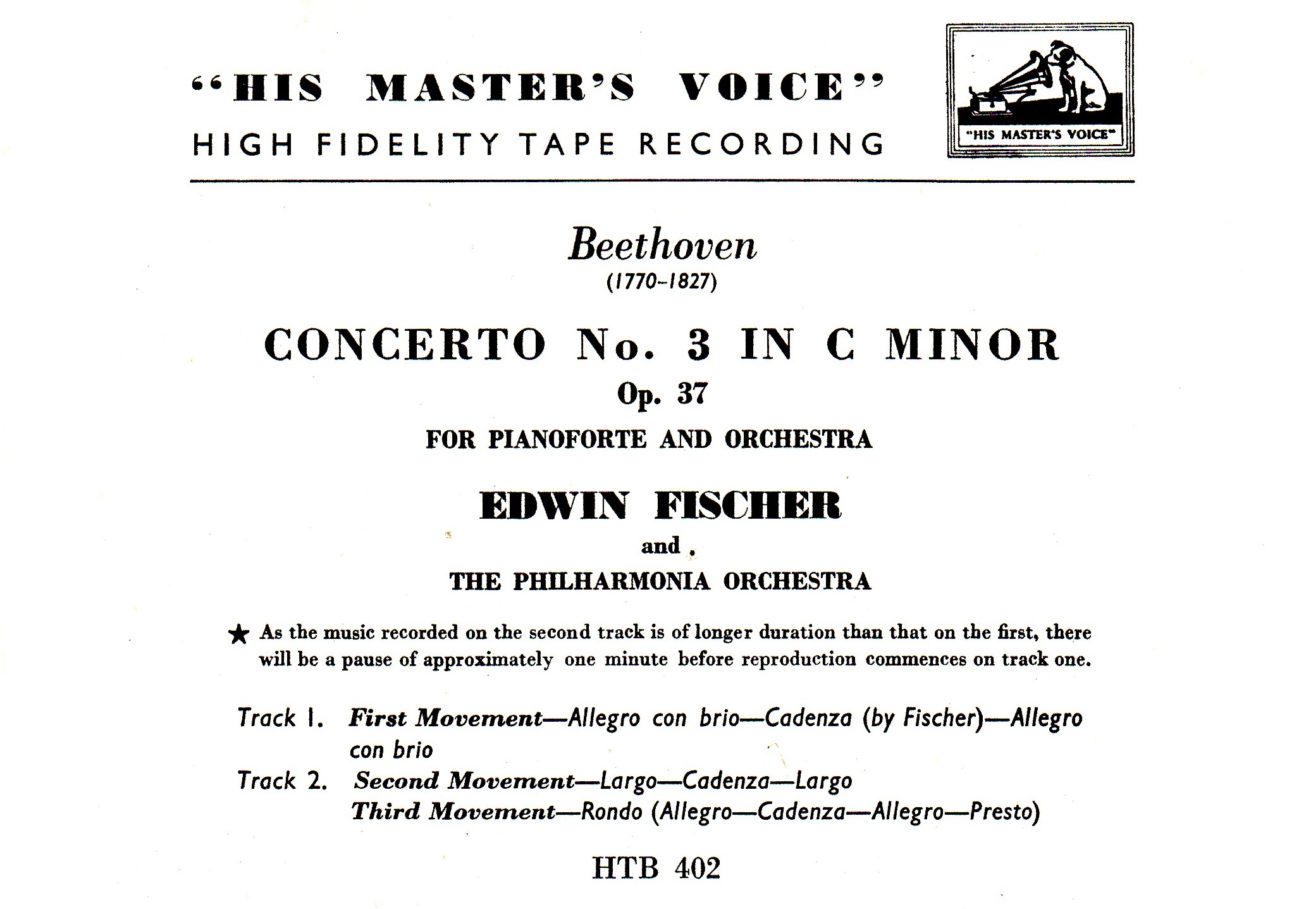
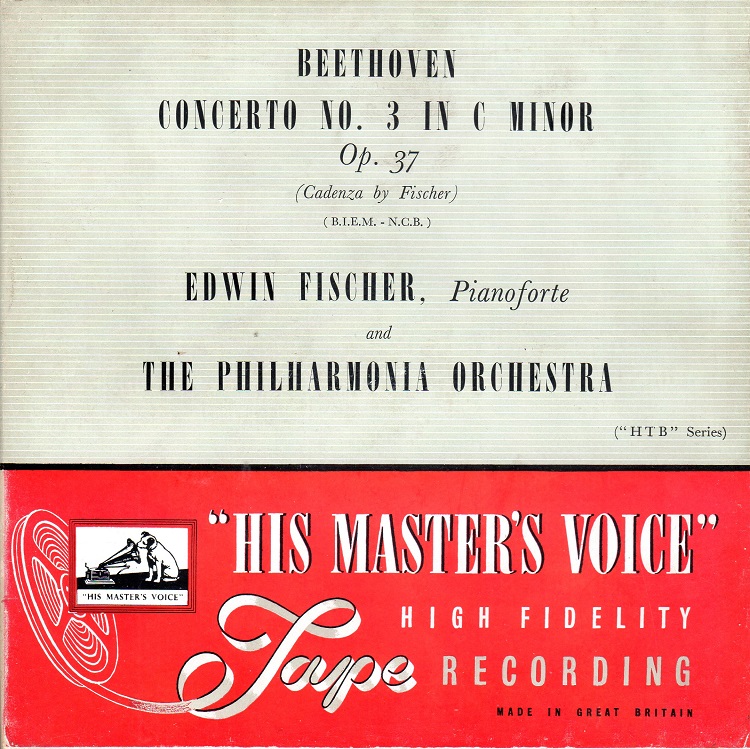
Les liens de téléchargement sont dans le premier commentaire. The download links are in the first comment
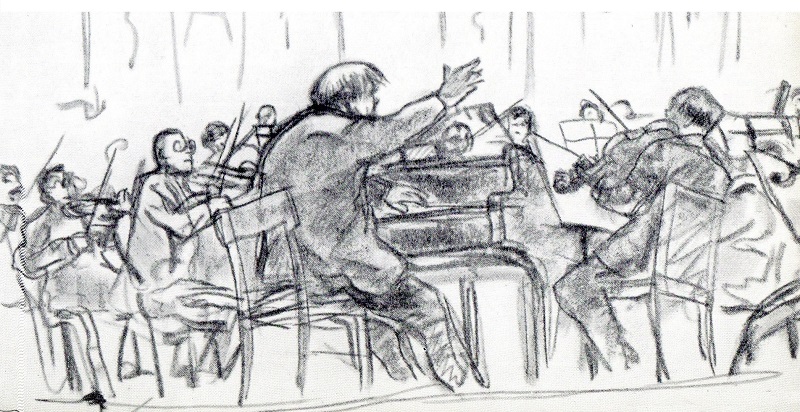
Maestro Editions qui a déjà publié le concert dirigé par Edwin Fischer lors du Festival de Strasbourg 1953, nous offre des inédits d’importance provenant cette fois du Festival de Salzbourg, où Fischer dirige les Wiener Philharmoniker. Il s’agit de la totalité du concert du 30 juillet 1951 (Mozart Concerto n°24 K.491, Haydn Symphonie n°104 et Beethoven Concerto n°1 Op.15) et du seul enregistrement qui subsiste du concert du 1er août 1949 (Beethoven Concerto n°4 Op.58).
Pour plus de détails, suivez ce lien:
Maestro Editions, which has already published the concert conducted by Edwin Fischer at the 1953 Strasbourg Festival, is now offering us some important previously unreleased material from the Salzburg Festival, where Fischer conducts the Wiener Philharmoniker. It is comprised of the entire concert of 30 July 1951 (Mozart Concerto No. 24 K.491, Haydn Symphony No. 104 and Beethoven Concerto No. 1 Op.15) and of the only surviving recording of the concert of 1 August 1949 (Beethoven Concerto No. 4 Op.58).
For more information, follow this link:
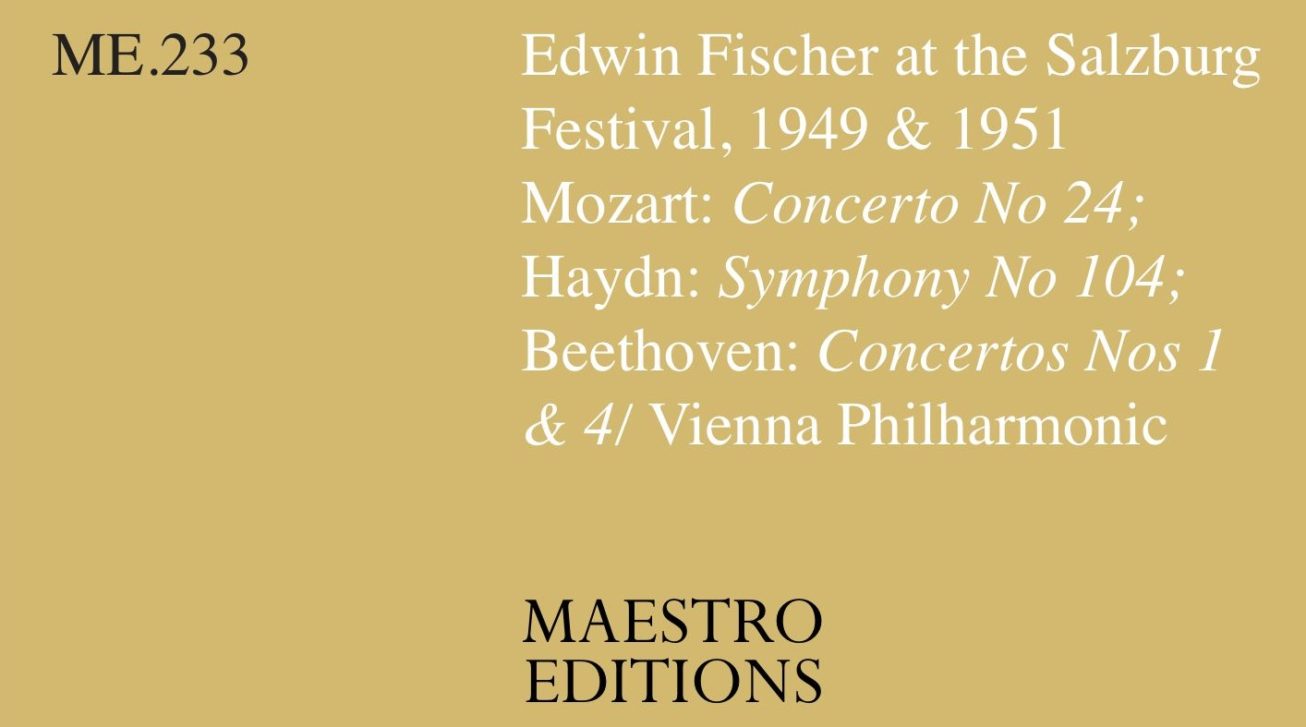
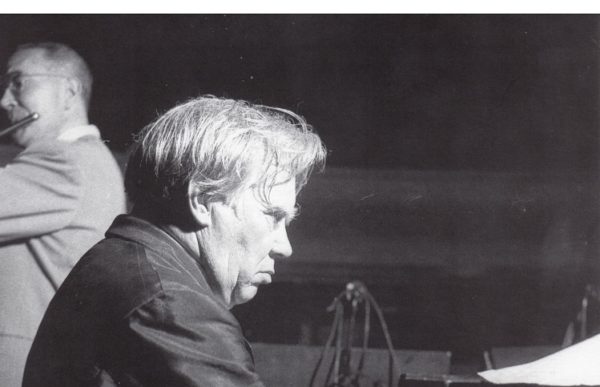
Le label Maestro Editions de Richard Chlupaty propose sous forme d’un album de 2 CD (ME 221) l’enregistrement intégral du concert Mozart donné le 12 juin 1953 au Palais des Fêtes de Strasbourg par Edwin Fischer et l’Orchestre Municipal de Strasbourg, au cours du Festival de Strasbourg 1953.
Pour plus d’information, lire l’article en cliquant sur le lien:
Richard Chlupaty’s label Maestro Editions has just published a 2 CD album (ME 221) comprised of the complete recording of the Mozart concert given on 12 June 1953 at the Strasbourg ‘Palais des Fêtes’ by Edwin Fischer and the ’Orchestre Municipal de Strasbourg’, as part of the ‘Festival de Strasbourg 1953’.
To know more about this issue, please click on this link:


Fritz Busch – Das Sinfonie-Orchester Winterthur Peter Rybar, Violine
Enr/Rec: Winterthur Stadthaus Konzertsaal September 1949
Source 33t Brüder-Busch Gesellschaft e.V. (BBG) F 667 293
Peter Rybar connaissait les frères Busch depuis les années trente, et Fritz Busch avait souvent dirigé l’orchestre de Winterthur dont Rybar était le Konzertmeister depuis 1938 (et le premier violon du Quatuor de Winterthur), l’orchestre ayant alors et jusqu’en 1950, pour chef Hermann Scherchen. Notons que Rybar a longtemps été, en alternance avec Michel Schwalbé, Konzertmeister de l’Orchestre du Festival de Lucerne. On connaît ses enregistrements avec Clara Haskil (Brahms Quintette Op.34, Mozart Sonate K.454 et Busoni Sonate n°2 Op.36a). Un autre partenariat régulier était avec Edwin Fischer et le couronnement en a probablement été le concert Beethoven donné au Septembre Musical de Montreux 1951 avec les Concertos n°3 et 4 ainsi que le Triple Concerto, les solistes étant Fischer, Rybar et le violoncelliste Antonio Tusa (remplaçant Enrico Mainardi, malade), qui sera suivi en mai 1952 d’une tournée d’une dizaine de concerts (toujours avec Antonio Tusa) en Allemagne, en Italie et en Suisse avec au programme les 5 Concertos pour piano et le Triple Concerto de Beethoven.
Ayant appris fin août 1949 que Fritz Busch se trouvait en Suisse, à Zürich, pour quelques semaines, Rybar se hâta de lui proposer de faire des enregistrements avec lui à Winterthur pour la firme Concert Hall. Cette situation se reproduira un an plus tard à Vienne avec Marcel Prawy pour une série d’enregistrements (Beethoven Symphonies n°3 et 8, Haydn Symphonie n°101) décidés là aussi à la dernière minute. A Winterthur, Busch enregistra la Sérénade « Haffner » pour laquelle Peter Rybar était le violon solo, la Cinquième Symphonie de Schubert D.485, et deux œuvres de Mendelssohn, l’Ouverture » Die Schöne Melusin » Op.32 et le Scherzo de l’Octuor Op.20. Ces enregistrements ont été réalisées à la Stadthaus de Winterthur, dans la Konzertsaal (1200 places), renommée pour son acoustique. Ils permettent de documenter la relation entre ces deux grands musiciens au sujet de laquelle les biographes sont peu diserts.
Comme le mentionne Peter Rybar dans une interview filmée en 1993, les captations étaient réalisées par mouvements entiers et sans montage. Dans l’édition d’origine, et aussi sur le premier microsillon édité par la BBG, les Andante I (2ème Mouvement) et II (6ème Mouvement) ont été permutés, mais Peter Rybar a confirmé qu’il s’agissait seulement d’un problème de mise en disque pour éviter de couper le 4ème mouvement, et que l’ordre des mouvements devait être rétabli.
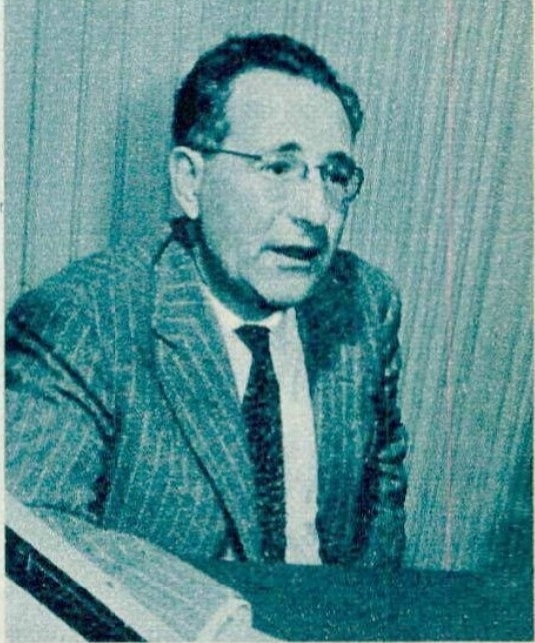
Peter Rybar
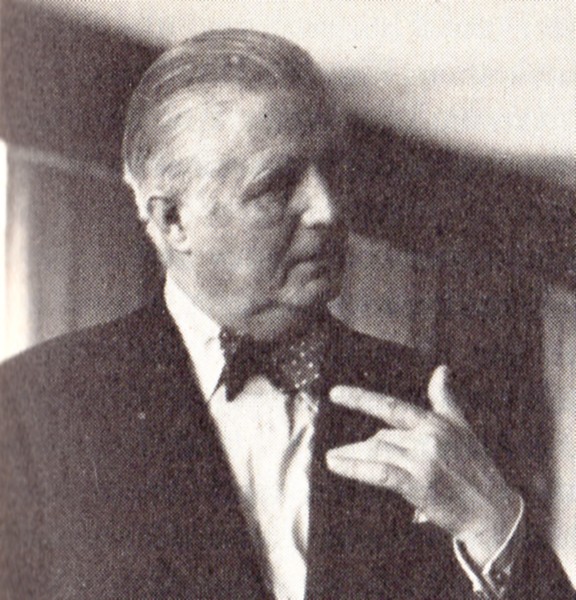
Fritz Busch

Winterthur Stadthaus
Peter Rybar met the Busch brothers in the 30’s and Fritz Busch often conducted the Winterthur Orchestra of which Rybar was the Konzertmeister since 1938 (and also the first violin of the Winterthur Quartet), the orchestra having then and up to 1950, Hermann Scherchen as music director. It is worth mentioning that Rybar was also, alternating with Michel Schwalbé, Konzertmeister of the Luzerner Festspielorchester. We know of his recordings with Clara Haskil (Brahms Quintet Op.34, Mozart Sonata K.454 and Busoni Sonata n°2 Op.36a). Another regular partnership was with Edwin Fischer, the high point of which being the Beethoven concert at the ‘Septembre Musical de Montreux 1951‘ with Concertos n°3 and 4 as well as the Triple Concerto, the soloists being Fischer, Rybar and cellist Antonio Tusa (remplacing the ailing Enrico Mainardi), followed in May 1952 by a tour (also with Antonio Tusa) of about ten concerts in Germany, in Italy and in Switzerland with Beethoven’s 5 Piano Concertos and his Triple Concerto.
Having learned toward the end of August 1949 that Fritz Busch was in Switzerland, in Zürich, for a few weeks, Rybar lost no time and proposed him to make recordings with him in Winterthur for the firm Concert Hall. This situation happened again one year later in Vienna with Marcel Prawy for a series of recordings (Beethoven Symphonies n°3 et 8, Haydn Symphony n°101), also a last minute decision. In Winterthur, Busch recorded the « Haffner » Serenade for which Peter Rybar played solo violin, Schubert’s Fifth Symphony D.485, and two works by Mendelssohn, the Overture » Die Schöne Melusin » Op.32 and the Scherzo from Octet Op.20. These recordings were made at the Winterthur Stadthaus, in the Konzertsaal (seating 1200), known for its acoustics. They allow to document the relationship between these two great musicians about which the biographers say much too little.
As Peter Rybar points out in a 1993 filmed interview, the takes were comprised of complete movements with no edit. On the original LP, and also on the first LP issued by the BBG, Andante I (2 nd Movement) and II (6th Movement) were permuted, but Peter Rybar confirmed that it was only for the purpose of avoiding on the LP a cut in the middle of the 4th Movement, and that the original order had to be restored.
